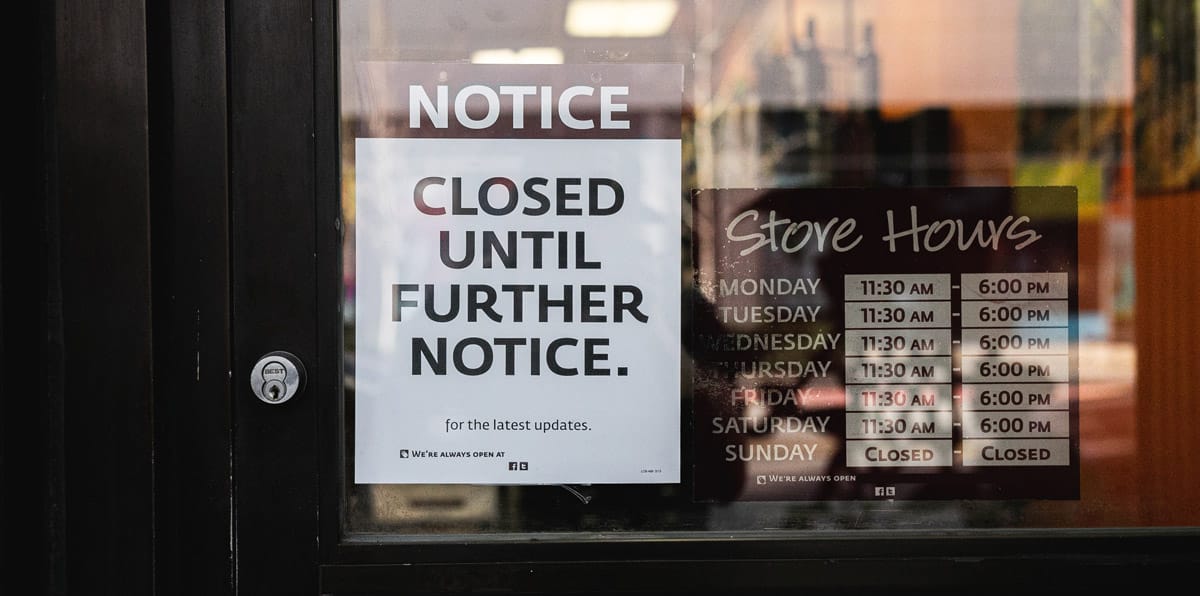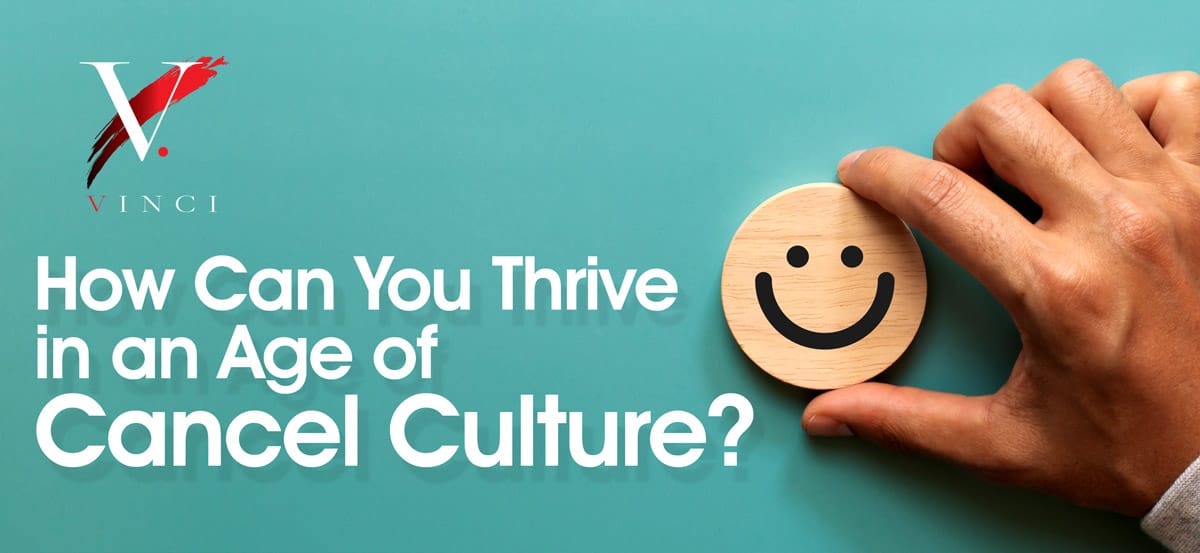Whether you’ve been directly involved in cancel culture or fear that it will negatively impact your business in the future, this concept holds huge implications for the modern market and social discourse in general.
While brands have long been penalized for spreading messages perceived as insensitive or unjust, this tendency has accelerated in recent years, giving rise to cancel culture. Under this system, people — often social media users — call for the cancelation or complete destruction of media outlets, businesses, or even concepts they find problematic.
Cancel culture is nothing more than a modern-day form of ostracism and may include someone or something being removed from social or professional circles regardless if it is done online, across social media, or in person. The debate around cancel culture often stems back to debates about free speech as well as censorship.
Unfortunately, cancel culture poses a serious threat for small businesses. Many struggle to come up with marketing messages that are compelling enough to keep the attention of their audience but not too controversial that they attract the wrong type of attention in today’s hypercritical digital environment. This can be a difficult balance to strike.
Business leaders need to acknowledge that, on occasion, the desire to cancel is justified. The entire movement was sparked by a desire to stand up to injustice wherever it appears. Unfortunately, this effort has accelerated to the point that it’s capable of damaging the small businesses that were previously vital to their respective communities and may not deserve to be canceled at all.
The good news? It’s possible to cultivate a resonant marketing campaign without getting canceled. This effort simply calls for a greater understanding of modern cancel culture, as well as the consumers who may or may not engage in it. We highlight a few of the most important considerations below:
What Are the Risks of Cancel Culture?

No single narrative can truly convey the diverse experiences of businesses that have been canceled or “called out” in response to real or perceived controversies. If there is one universal thread that joins these cases, however, it’s the tendency for them to quickly spiral out of control. Many business owners express both surprise and dismay at how easily they go from ordinary operations to overwhelming controversy. This is largely driven by online activism, but virtual cancel efforts can spill over into real life to cause chaos on multiple fronts.
Whether or not someone succeeds in canceling targeted businesses, eventually even the most enraged protesters typically move on after a period of time. By then, however, the damage has been done. Without a swift and assertive response, your reputation, which took years to construct, can quickly be torn down.
Months, even years later, prospective customers may observe negative reviews, angry posts or comments, or even stories published on major media outlets that continue to denigrate a business’s reputation. When this overrides marketing efforts such as blog content, social media, or email newsletters, it limits the ability to connect with prospects. What’s more, businesses targeted by cancel efforts may suffer damaged relationships with previously loyal customers. The potential negative fallout is immense and catastrophic.
The Importance of Knowing Your Audience

The reality of cancel culture may be alarming, but ultimately, it serves as a swift reminder of how important establishing a strong brand and culture is, even within a smaller organization. Cancelation may pose a real risk, but it’s not suffered by all — or even most — companies. What’s more, many businesses have managed to bounce back from major controversies and restore public confidence in their products, services, and general branding.
Often, the organizations that survive in spite of cancel culture adhere to the cliche “it’s better to stand for something than nothing at all.” They succeed not because they give in to demands, but because they understand what matters to their core consumers.
This is the cornerstone of Nike’s approach. There was no doubt as to whether pushback would occur upon placing controversial athlete Colin Kaepernick at the center of one of Nike’s highly publicized marketing campaigns. While this decision may reflect, in part, a true commitment to the ideals for which Kaepernick and the Black Lives Matter movement stand, the risky strategy also stems from Nike’s efforts to appeal to an increasingly young and diverse customer base. The potential for building stronger relationships among key consumers managed to override any perceived risks.
In other situations, companies may receive pushback against long-held traditions and, instead of changing their approach, explain why it’s worth maintaining. Trader Joe’s accomplished exactly that in response to a 2020 controversy involving branding for ethnic products. A small subset of customers expressed concern about the company stereotyping by using names such as “Trader Giotto” and “Trader Jose.” Rather than make sweeping changes, the grocery chain chose to play to its strengths, explaining that these names represent “an attempt to have fun with our product marketing.”
Leaders at both Nike and Trader Joe’s understand that, while it’s impossible to please everyone, modern marketing is most effective when it’s bold — and tailored to the unique personalities and preferences of targeted customers. If these consumers are happy, it’s okay to receive the occasional critique. Of course, when companies are truly in the wrong, a genuine and well-timed apology can make a world of difference, as can corrective actions. The key is knowing when complaints reveal problems that defy the company’s philosophy or culture or are an assault on the foundations of society such as racist remarks or ideology.
Moving Beyond Cancel Culture: What’s Next?

While the risks of cancel culture need to be taken into account in today’s digital environment, it’s safe to assume that the internet will continue to evolve. If results from a 2020 POLITICO survey are any indication, a significant share of modern consumers either have tired of cancel culture or are unaware of it completely. In this study, 46 percent of respondents claimed that cancel culture had “gone too far,” with nearly half adding that it had a somewhat negative or very negative impact on society.
Cancel culture critics believe that this approach paints brands and individuals in black and white, thereby sowing greater division in these already fractured times. You’re either “for” something or “against” something. Skeptics feel that cancel culture fails to acknowledge there are many factors surrounding controversial messages and behaviors and someone’s personal experience or perspective may not accurately reflect the brand or a true reflection of events. Our society is angry and rightfully so. However, many believe that villainizing others doesn’t spur change, but rather, prevents it by limiting empathy.
There are also instances where cancel culture unfairly targets businesses due to the actions of a rogue employee, the Rashomon Effect (where different eyewitnesses describe different versions of the same event), a bitter competitor just looking for you to fail, or even a difficult customer who isn’t happy for whatever reason and decides to go on the offensive to ruin a business’s credibility and reputation.
Even celebrities are put on the chopping block today simply for being labeled “problematic” or “difficult to work with.” Cancel culture is so swift to eliminate anything that is deemed morally reprehensible but not everyone may agree on what does or does not make the cut. And, while these situations are few and far between it does happen, and raises important questions:
- Who should be responsible for forcing a business to change its policies?
- Who is policing those leading the cancel culture movement or the followers who choose to join the cause and target a person, place, or thing?
- How do we fairly identify and root out behaviors or statements that are offensive, racist, and morally reprehensible in society?
- Who gets to decide what is acceptable and what is not?
- What safeguards can we implement to ensure those attempting to “cancel” someone or something have done their due diligence?
- What safeguards or actions can businesses take to safeguard themselves from the cancel culture movement?
- If wrongly targeted can or should a business pursue legal action to reinstate its name and reputation?
- What is the ultimate goal of the cancel culture movement? Is it to root out bad business practices and ethics? Or is it an attempt to eliminate opposing ideas, beliefs, and views that differ from our own? Or both?
- How do we promote change without the use of force or having to villainize others in the process?
These are difficult questions to answer but will help deepen the discussion around how to effectively root out bad business practices and internal culture.
In the future, a modified version of cancel culture is likely to emerge. Customers will be more likely to speak out when they witness behaviors and attitudes they find concerning — but most will stop short of demanding that the brands they deem problematic be canceled in their entirety. In many cases, the company’s response to the controversy will prove more important than the actual source of the dispute.
While some aspects of cancel culture are likely here to stay, some level of change can be expected as customers embrace layered, sophisticated messaging that reflects today’s diverse market. Conscious consumers don’t expect companies to get it right 100 percent of the time, but they prefer to support businesses that make a real effort to understand the needs and concerns that matter most to their audience. This means actually listening to customers when they speak out — and responding in a thoughtful, caring manner. Kindness matters. Empathy matters. And businesses that root their practices in serving their customer base with respect, equality, and open dialogue will continue to be rewarded far into the future.
How Vinci Digital Can Help You Thrive in an Age of Cancel Culture

At Vinci Digital, we’re well aware of the risks and rewards of marketing in the modern virtual environment, which is both complex and exciting. Saying what you want and how you feel without fear of retaliation or a negative impact on your business, while also trying to grab the attention of your audience can be challenging.
We want to help you make the most of today’s unique opportunities, crafting how you tell and share your story with your audience, while also maintaining control over your digital reputation. Contact us today to learn how you can benefit from our brand development and reputation management services.
PS: What are you doing to manage your brand’s reputation as you deal with the complications of cancel culture? Have you made any changes to your marketing approach? Leave a comment below to share your thoughts.











